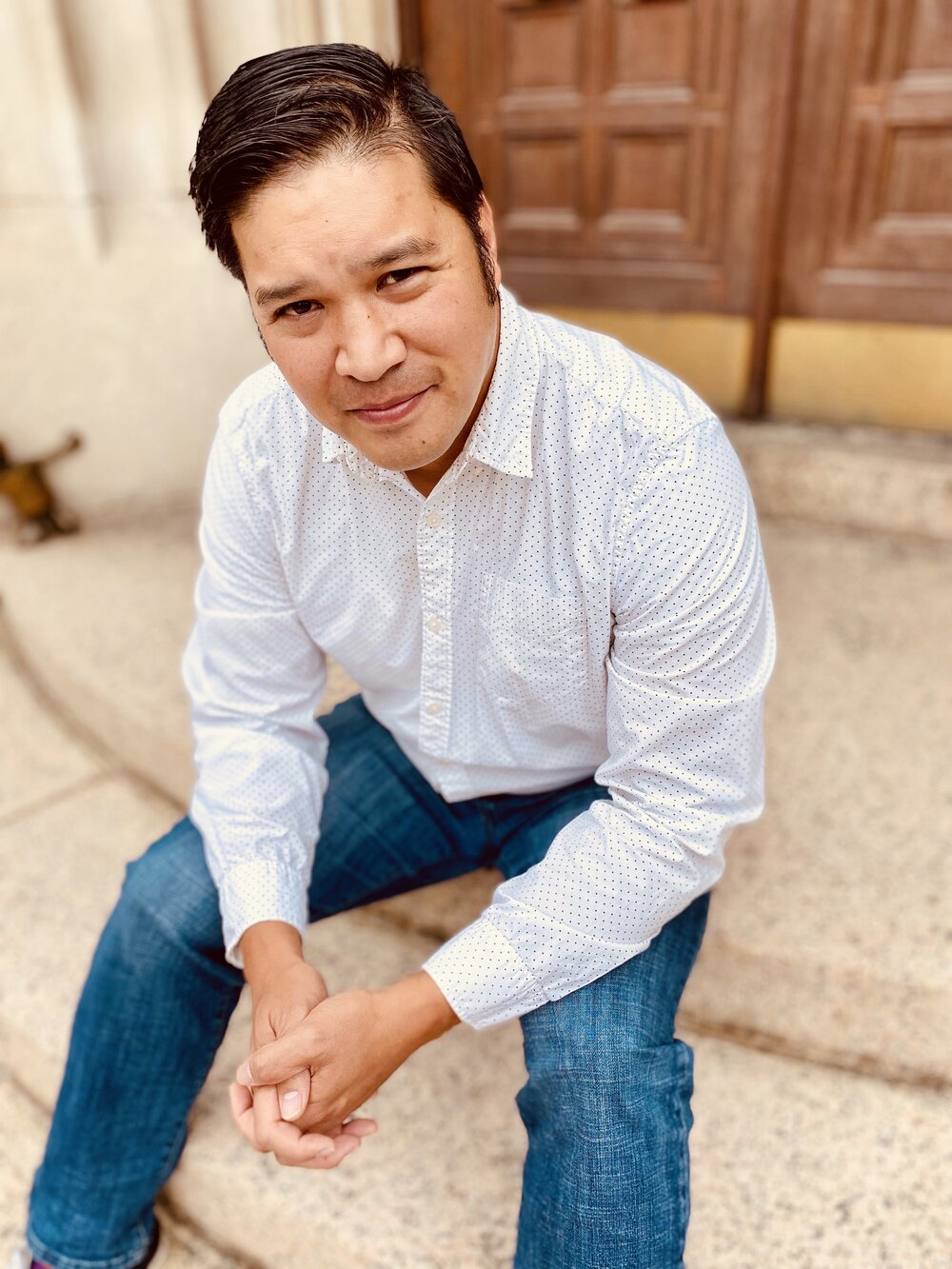By Michael Angelo Smith-Torres
Albert Abonado is the author of JAW (Sundress Publications). He has received fellowships from the National Endowment for the Arts and the New York Foundation for the Arts. His work has appeared in Colorado Review, Poetry Northwest, The Laurel Review and others. Albert co-hosts New Ground Poetry Night. He teaches creative writing at SUNY Geneseo and RIT. He lives in Rochester, NY with his wife and a hamster.
West Branch: In your National Endowments for the Arts personal statement you write “All my writing begins and ends the same way: Who is this person speaking and how did they get here?” Who is the speaker in “America Tries To Remove a Splinter,” the first poem in your book JAW? How does the use of caesuras play into the speaker’s voice?
Albert Abonado: The speaker in the opening poem is America, which, when I say that out loud, honestly feels a little silly, but that is how I always imagined it. To say America is the poem’s voice sounds as if the poem would have some swagger to it, maybe loud and a little reckless, a little careless, a chest-thumping kind of America. To some extent the America of the poem features that kind of confidence, but is careful and calculating. This America is a quieter, duplicitous America, a more patient America who wants to seduce you, convince you that the charm of its small gestures is sufficient, who sees with any injury an opportunity that can be exploited, that its compassion comes with a price.
I see the caesuras as a space for the speaker to pivot so the poem never feels completely stable, balanced. I was watching a video of a pickpocket and how deftly he manipulated the attention of his audience so that his intention to remove a watch, for example, were not revealed until the end. I think of the white space in this poem like that, a place for the speaker to move the poem around, a place to disguise intent, to conceal an America that hides in the silences.
WB: This dual-natured America makes me think of the multilayered “Frederick Douglass: A Triptych.” How does your vision of Frederick Douglass, a great diasporic American figure, act in conversation with the dual-natured America established in “America Tries to Remove a Splinter”?
AA: This is such a wonderfully perceptive question. Thank you for asking. Great American historical figures and particularly black figures may endure violence and isolation while they live, only to have their story co-opted and flattened, their ideas and lives reduced to a handful of choice aphorisms. This is the America of the poem at work, the America who decontextualizes Douglass’ great achievements and complex humanity to make them palatable. The Frederick Douglass of the poem, I believe, wants to resist that flattening. Frederick Douglass of the poem is suspicious of the audience’s gaze and America’s flattery, acutely aware of America’s need to package Douglass until he is reduced to an abstraction, remolded into something tidy and accessible, something that centers white audiences and white experiences.
WB: Commentators have described your work as surreal. Would you agree with that? How does surrealism interact with your themes of diaspora?
AA: I owe a heavy debt to surrealism. I am drawn to its dreamy flexible logic, its use of juxtaposition, its exploration of the psychological. As a writer interested in exploring diasporic experience, this makes sense. How else do I explore the hyphen in Filipinx-American, which can feel like a fragmented identity? I regularly encounter the collision of cultural experiences/values/stories as I navigate white spaces so I lean into juxtaposition, which can reveal layers to experience that extend beyond the personal, the psychological. It’s everything, everywhere all at once. It’s Harold and Kumar and Catholicism, it’s Kaiju and my grandfather’s funeral. I am reluctant to call the work itself surreal. I feel surrealism speaks more to a historical, cultural, and political moment, and references writing practices that I can’t say I apply to my work. At most, I trade in a very light surrealism. Mostly, I look towards surrealism to inform the writing, providing me with the tools and space to play, to explore, to render meaning from the fragments of my diasporic experiences.
WB: Albert, this interview has been thought-provoking and insightful. Much gratitude. Are there upcoming projects or a message to your audience you would like to put out into the ether?
AA: Currently, I am working my way through a new manuscript. It’s still pretty early, but I think I have a sense of the book’s direction. I say that now, but I must have changed my mind several times. Still, it’s nice to have something to focus my attention, a new obsession. I suppose I hope whoever might read this becomes familiar and comfortable with their obsessions, that repetition is not necessarily a sign of stagnation but a deepening of something sacred. Our obsessions are rarely simple, composed of layers, and our pursuit may lead to surprising revelations. As I worked through some of the early poems of the new collection, I tried to push against my obsessions. How many times can I talk about family, death, religion, identity etc? But the writing reminded me that I cannot escape myself in my poems. They are my obsessions for a reason so I learn to embrace them, explore them, reimagine them with every poem. There’s always something more to say.
Albert Abonado’s poems “On the History of the Line” and “Recollection” appeared in West Branch 97, Fall 2021 (Print Issue).

